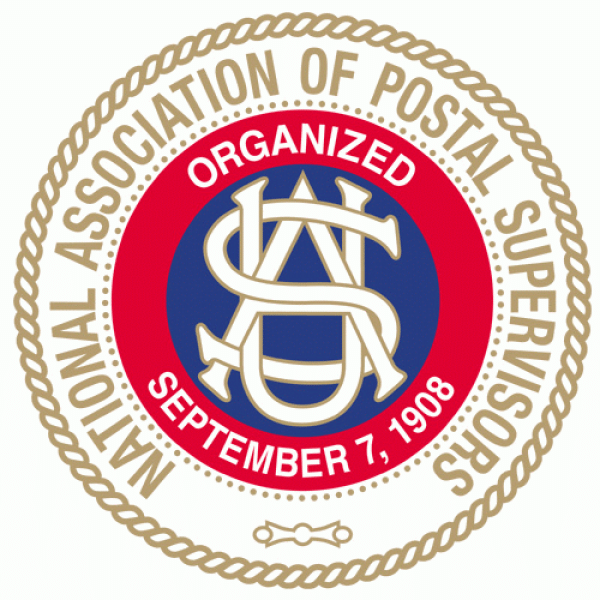There's Value in Fighting for Meaningful Postal Reform
There’s Value in Fighting for Meaningful Postal Reform
By Bob Levi
NAPS Director of Legislative & Political Affairs
In case you don’t appreciate the extraordinary consequence that postal legislation has for American businesses, allow me to share some eye-opening lobbying data filed for calendar year 2018. In a way, this information can quantify the value that enactment or defeat of meaningful postal legislation has to specific postal stakeholders.
Current law requires organizations retaining registered lobbyists, whether in-house or by contract, to report the amount of money those organizations spend on trying to influence public policy. As part of the filing, the organizations must list the bills and issues on which they have lobbied. This information is submitted to the clerk of the House of Representatives and the Senate and is publicly disclosed on the House and Senate websites.
Postal-interested groups range from the American Lung Association, a charitable organization interested in nonprofit postage, to Walmart, a brick-and-mortar retailer competing with Amazon for ecommerce. Of course, NAPS, labor unions and the “usual suspects” in the postal world also must file. In the most recent submissions, which were for the first quarter of 2019, more than 80 postal lobbyists registered with the House and Senate.
To fully grasp the magnitude of this influential group, you need to ook at the final lobbying report for 2018. The 2018 filing lists about the same number of registered lobbyists as reported for the first quarter of 2019. The “leader board” for 2018 is not surprising. Heading the pack was Amazon at $14.4 million, FedEx spent $10.1 million and the expedited delivery giant was followed closely by UPS at $9.4 million. Those were the big three.
Other notable postal players included the Magazine Publishers, which spent $550,000, the combination of Hallmark Cards and the Greeting Card Association expended $320,000 and the newly established Package Coalition paid out $300,000. Finally, the combined reported expenses of the postal labor unions and management associations totaled $1.5 million.
It is important to note that these numbers do not include the millions of dollars in campaign contributions made through established political action committees (PACs) or through direct contributions from corporate officers to congressional candidates. That’s for another article.
Each of the postal players have specific interests regarding the content of postal legislation and will use all the resources at their disposal to advance their cause. (NAPS will do the same.) For example, in the past year, UPS (aka Big Brown) pushed its weight with the White House to include a number of recommendations in the President’s Task Force on the U.S. Postal System harmful to the Postal Service, its employees and many parcel customers. For this reason, in addition to smart, targeted lobbying, NAPS needs to maximize our most valuable asset: our extensive and effective grassroots network.
NAPS members live and work in every state and virtually every congressional district. We are over 27,000 members strong, committed to fighting for postal viability. Without a viable Postal Service, there are no supervisors. So, please tune in to our weekly podcast—NAPS Chat—to get the scoop on the latest issues in the postal world.
The sustainability of the Postal Service came into clearer focus with two recent reports issued by the Postal Regulatory Commission (PRC): the Annual Compliance Determination (ACD) and the FY18 Financial Analysis of the Postal Service. Both reports were sobering. The ACD reviews the USPS’ compliance with postal law, paying particular attention to service; the Financial Analysis examines the USPS’ 10-K Statement, a comprehensive, year-end fiscal statement.
In the ACD, the PRC concluded that USPS performance declined for a majority of postal products as compared to the previous fiscal year and, for most products, the USPS failed to meet performance targets for FY18. The PRC also took note of declines in postal accessibility. The PRC documented the continuing decrease in the number of retail outlets and collection boxes. As compared to the previous year, the USPS reduced the number of USPS-managed outlets by 53 (a two-year reduction of 261) and reduced the number of non-USPS-managed outlets by 205 (a two-year reduction of 508).
Ironically, the data shows that, although the USPS is promoting alternative channels for conducting postal business (for example, usps.com and “postal partners”), Dates postal walk-in revenue June 6-8 declined by only 0.7 June 6-8 percent as compared to June 7-8 the decline in internet-generated revenue of 3.7 percent and the de-cline of “other means of conducting postal commerce” by 5.2 percent. This demonstrates the importance of postal-branded retail outlets staffed by well-trained postal employees.
The Financial Analysis reported a USPS net loss of $2.1 billion in FY18 and attributed the loss primarily to the persistent decline of First-Class Mail and increased operating expenses. Revenue from First-Class Mail fell by about 4 percent. Also, while the volume and revenue grew for competitive classes of mail, in-cluding small parcels, the increase slowed as compared to last year. Moreover, the PRC illustrated that the retiree health “unfunded liability” continues to be a drag on postal vitality.
With the release of these two reports, NAPS urges the PRC to release its final recommendations for establishing a revised postal rate-setting system. Late last year, the PRC issued preliminary rate-setting recommendations that would help the Postal Service. Since then, the vacancy on the PRC has been filled; the five-member commission now is operating at full strength.
Furthermore, the House Committee on Oversight and Reform tentatively scheduled a hearing for late April, after the June issue of The Postal Supervisor magazine went to the printer. NAPS is pushing for the introduction and prompt consideration of a constructive postal bill soon after the hearing. Watch for NAPS legislative updates for news.
